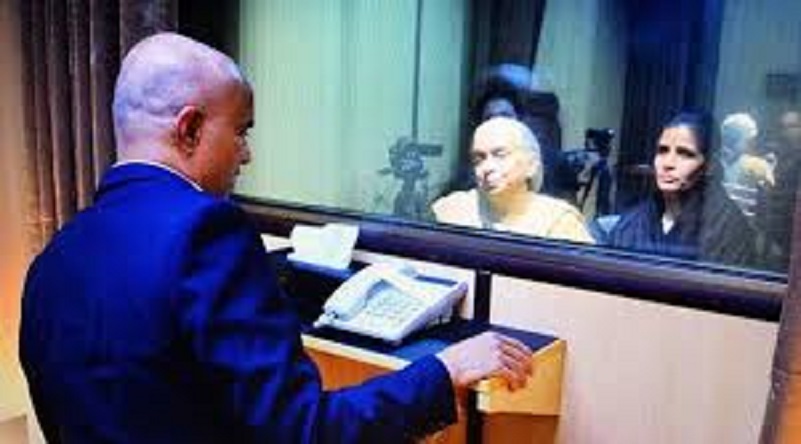Pak Attorney General Khalid Javed was unable to attend the hearing on 9 March due to Covid-19 infection.
New Delhi: The Islamabad High Court (IHC), which is hearing the case of 50-year-old Indian national Kulbhushan Jadhav, who completed five years in Pakistan’s custody earlier this month, adjourned the matter for 8 April after the Attorney General of Pakistan, Khalid Javed, was unable to attend the hearing on 9 March due to Covid-19 infection.
Jadhav, a retired Indian Navy officer, was sentenced to death by a Pakistani military court on charges of “espionage” and “terrorism” in April 2017.
The said order was challenged by India who approached the International Court of Justice (ICJ) following which the Hague-based body, on 17 July 2019, ruled that Pakistan must undertake an “effective review and reconsideration” of the conviction and sentence of Jadhav and also to grant consular access to India without further delay.
As a result, in July 2020, the Pakistan government, in a unilateral petition, asked the IHC to appoint a legal representative for Jadhav so that Pakistan can fulfil its “responsibility” to ensure the implementation of the ICJ’s decision of a fair hearing. In August 2020, the IHC appointed three lawyers as amicus curiae in the case of Kulbhushan Jadhav.
However, as of today, the Pakistan government has refused to give “unimpeded, unhindered and unconditional consular access” to Jadhav with the last such access (which was the second one) ending abruptly after Indian officers and Jadhav were subjected to intimidating demeanour by Pakistani officials on 16 July 2020.
According to Indian officials, during the entire time, the Pakistani officials were present in close proximity to Jadhav and the Indian officials and their conversation were being recorded.
“Pakistani officials are blatantly violating the judgment of the ICJ. They just want to get over with the entire process as quickly as possible, despite none of the ICJ mandated processes being followed in right earnest,” an official source said.
It is pertinent to mention that Jadhav’s fate—who has been described by the Pakistani establishment as a Research and Analysis Wing (R&AW) agent—has been linked by the Pakistani media and ministers to the disappearance of a retired Pakistani army official, Lt Colonel Muhammad Habib Zahir, who disappeared from Lumbini, Nepal, in April 2017.
On Thursday, the Pakistan government again raised the issue of Colonel Habib with the Pakistan foreign office stating that “Indian agencies were behind the abduction
“There is strong evidence pointing towards the involvement of Indian hostile agencies in the abduction of Habib Zahir, including involvement of Indian nationals, who reportedly received him at Lumbini, made his hotel reservations and booked his tickets,” Foreign Office spokesperson Zahid Hafeez Chaudhri said.
In June 2017, a Pakistani minister Abdul Qadir Baloch, while speaking in the Pakistani senate had told the senate members that “the issue (the disappearance of Colonel Habib) appeared to have a link with the conviction of Indian spy Kulbushan Jadhav”.

